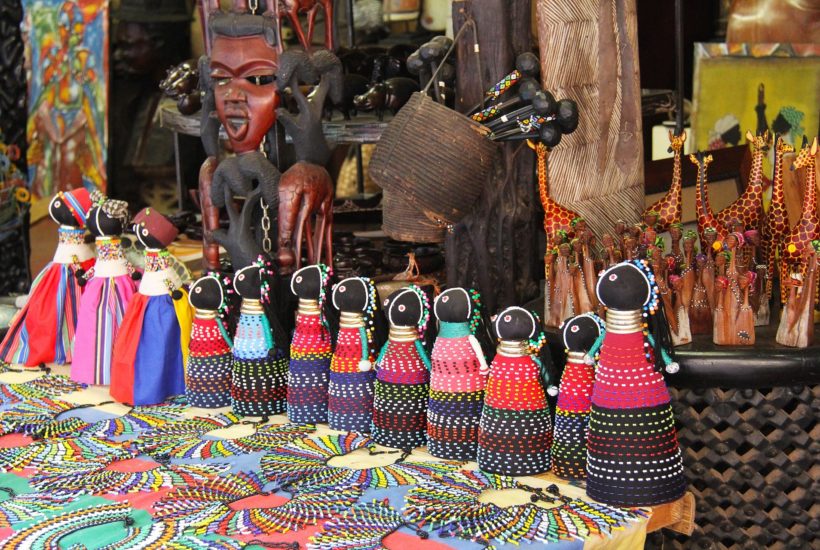Africa
African handicrafts as a tool for inclusive economic recovery
The crises caused by COVID-19 should lead to a rethinking of post-crisis investment strategies for a solid and socially inclusive recovery. African countries abound with a largely under-exploited wealth, that of a multitude of craft trades whose actors are heavily involved in the local economic fabric. New consumer habits in Europe and the United States represent a real opportunity for the sector.

In these difficult times of pandemic and global economic crisis, calls to help Africa and to think about the post-crisis period are multiplying. For example, billionaire Jack Ma has stated that “the world could not bear the disastrous consequences of a COVID-19 epidemic in Africa.”
For his part, President Emmanuel Macron pleads for the cancellation of African debt. While it is important to give priority to health aid to meet the current needs of African states, the strong economic impact, as well as the social degradation and migratory pressure that are likely to result, should not be underestimated. This should prompt governments, private investors, and, in particular, international development agencies to rethink their post-crisis investment strategies to ensure a robust and socially inclusive recovery while learning from the shortcomings of past decades.
While foreign direct investment more than quintupled between 2000 and 2018, returns in terms of job creation have fallen short of expectations. Much of the financial resources have been mobilized in important but capital-intensive sectors with limited potential for inclusive growth. Those include infrastructure projects or for the exploitation of raw materials dependent on exogenous factors, such as price trends on international markets.
Read more about the importance of handicrafts in the post COVID-19 economic recovery and be the first to find out the latest business news in the world, with the Born2Invest mobile app.
Rediscovering the inclusive dimension of craftsmanship
However, African countries abound with a largely under-exploited wealth, that of a multitude of craft trades whose actors are heavily involved in the local economic fabric. The production of a woollen carpet in Morocco, a mohair carpet in Madagascar, or a bogolan cotton fabric in Mali, mobilizes farmers, shepherds, spinners, dyers and weavers.
The artisan is therefore often part of an interlocking network of self-employed workers that should be targeted first in any economic and social development policy. This is all the more so as part of the know-how is the monopoly of women, who also play the role of educators within their families, paving the way for the social mobility of the younger generations. Craftsmanship allows for a development that is rooted in several fringes of society and at all ages.
Crafts represent a considerable share of African economies (15% of GDP in Côte d’Ivoire, 8% to 10% in Senegal). However, the sector remains largely unstructured: in Morocco, where it employs more than a million people, 95% of the total turnover is made by single craftsmen.
Although there have been several attempts to accompany the development of the sector, these are often small associative projects whose aim is to provide technical and material assistance for production. Whereas the real issues are those of work organization, innovation, and adaptation of the craftsmen’s offer, in terms of materials, colors, patterns, sizes, etc., to local and international demand.
Become aware of the commercial and industrial potential
New consumer habits in Europe and the United States represent a real opportunity for this sector. Consumers now favor authenticity, sustainability, and eco-responsibility of products. They are also imposing total transparency on the entire value chain, from design and creation to manufacturing and sales.
This evolution, which will undoubtedly take on greater importance in the post-crisis world, is an opportunity for craftsmen with a thousand-year-old know-how who will succeed in adapting their offer. It can eventually become the driving force behind a rapid transformation of the craft sector, and of the economy as a whole. But only if the public investment effort, as well as that of international organizations, is directed towards creating the conditions for the permanent adaptability of supply. This commitment must serve primarily to support entrepreneurs with craft projects, and to train young Africans in the creative and design, production and marketing.
The aim is to lay the foundations for industrialization of the craft sector to make it more attractive to private investors, following the example of what has been successful in Northern Italy and Japan. Local entrepreneurs, some of whom have studied in Europe, can spearhead such a strategy. They are the missing link between the various stakeholders and the local economic fabric.
__
(Featured image by sharonang via Pixabay)
DISCLAIMER: This article was written by a third party contributor and does not reflect the opinion of Born2Invest, its management, staff or its associates. Please review our disclaimer for more information.
This article may include forward-looking statements. These forward-looking statements generally are identified by the words “believe,” “project,” “estimate,” “become,” “plan,” “will,” and similar expressions. These forward-looking statements involve known and unknown risks as well as uncertainties, including those discussed in the following cautionary statements and elsewhere in this article and on this site. Although the Company may believe that its expectations are based on reasonable assumptions, the actual results that the Company may achieve may differ materially from any forward-looking statements, which reflect the opinions of the management of the Company only as of the date hereof. Additionally, please make sure to read these important disclosures.
First published in LePoint, a third-party contributor translated and adapted the article from the original. In case of discrepancy, the original will prevail.
Although we made reasonable efforts to provide accurate translations, some parts may be incorrect. Born2Invest assumes no responsibility for errors, omissions or ambiguities in the translations provided on this website. Any person or entity relying on translated content does so at their own risk. Born2Invest is not responsible for losses caused by such reliance on the accuracy or reliability of translated information. If you wish to report an error or inaccuracy in the translation, we encourage you to contact us.

-

 Impact Investing3 days ago
Impact Investing3 days agoEuropeans Urge Strong Climate Action Amid Rising Awareness and Support
-

 Cannabis2 weeks ago
Cannabis2 weeks agoRecord-Breaking Mary Jane Fair in Berlin Highlights Cannabis Boom Amid Political Uncertainty
-

 Biotech1 week ago
Biotech1 week agoVytrus Biotech Marks Historic 2024 with Sustainability Milestones and 35% Revenue Growth
-

 Crypto3 days ago
Crypto3 days agoRipple Launches EVM Sidechain to Boost XRP in DeFi

























